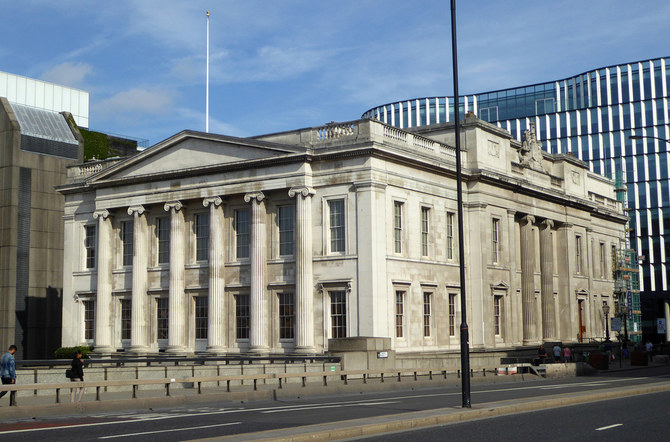LONDON: “Very unsatisfactory” information sharing between security services ahead of a terrorist attack in London contributed to the deaths of two young Cambridge University graduates, a coroner has said.
In November 2019, convicted terrorist Usman Khan fatally stabbed Saskia Jones and Jack Merritt at an event for educating prisoners.
Inquest coroner Judge Mark Lucraft criticized the actions of security services leading up to the attack, and said the case showed that they must work more closely together.
The case, he added, also gave “cause for concern that counter-terrorism police may be in possession of intelligence or information which may be useful to the management of an offender” by the multi-agency public protection arrangements (MAPPA) panel, but “that such intelligence or information may not be brought to the knowledge of, or taken into account by, MAPPA agencies.”
Lucraft said the Home Office and Ministry of Justice needed to consider how intelligence known only to MI5 could be taken into account by MAPPA.
Inquests earlier this year into the deaths of Merritt and Jones found that MI5 contributed to their deaths.
Khan, 28, used a knife and wore a fake suicide vest in the attack in Fishmonger’s Hall, next to London Bridge.
He was chased onto the bridge by event attendees before being shot 20 times by police, who believed his vest was real.
Lucraft said of the weeks leading up to the attack: “A very unsatisfactory situation arose whereby there was a strand of intelligence received shortly prior to Usman Khan’s release from prison that he intended to carry out an attack, but the MAPPA panel participants were in the main entirely ignorant of that intelligence.
“This case gives cause for concern that counter-terrorism police may be in possession of intelligence or information which may be useful to the management of an offender by the MAPPA panel, but that such intelligence or information may not be brought to the knowledge of or taken into account by MAPPA agencies.
“This issue should be addressed, preferably by ensuring that a single police officer from any covert investigation is responsible and accountable for ensuring that intelligence and information is properly shared and taken into account.”
Khan, who was originally jailed for planning a bomb attack on the London Stock Exchange, was still subject to certain restrictions to his daily life following early release from prison when he carried out the Fishmonger’s Hall attack, including not being allowed to use train stations.
An exception was made for him to attend the prisoner education event where he carried out the attack.
Inquest jurors previously concluded that there had been failures in the sharing of information between state agencies responsible for monitoring him, and that the event itself had deficiencies in its security arrangements.

